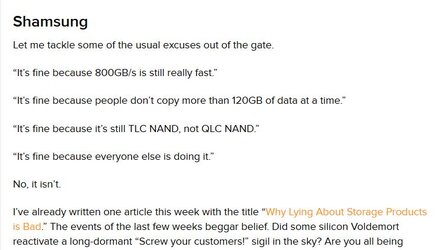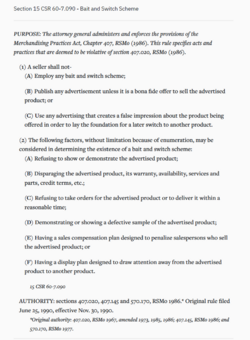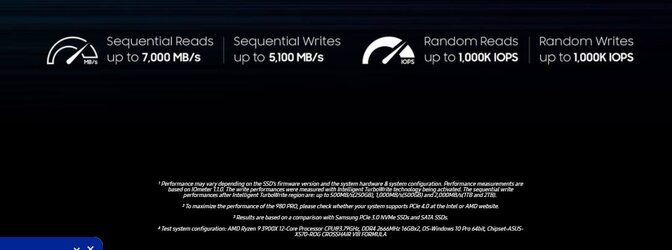- Joined
- Feb 18, 2002
Crucial and Western Digital were caught swapping TLC NAND for inferior QLC NAND without updating product SKUs (!) or informing reviewers of this change...
Samsung isn't swapping TLC for QLC. Rather Samsung is swapping the drive controller + TLC for a different, inferior drive controller and different TLC.
Proof:
https://www.extremetech.com/computi...atest-ssd-manufacturer-cheating-its-customers
If any of these drives were reviewed by overclockers, I suggest capital letter bold edits to review titles...
Two different versions of the Samsung 970 Plus exist, for example.
Both drives are labeled with the same sticker declaring them to be 970EVO Plus.
One drive is labeled MZVLB1T0HBLR (older, good) and the other is MZVL21T0HBLU (newer, inferior).
Chips are different. One is Phoenix, the other Elpis.
Phoenix drive is older and faster and the Elpis drive is newer and slower.
Bait and Switch laws in the United States prohibit this. Owners can sue and put to test anyone who thinks this is legal.
Samsung isn't swapping TLC for QLC. Rather Samsung is swapping the drive controller + TLC for a different, inferior drive controller and different TLC.
Proof:
https://www.extremetech.com/computi...atest-ssd-manufacturer-cheating-its-customers
If any of these drives were reviewed by overclockers, I suggest capital letter bold edits to review titles...
Two different versions of the Samsung 970 Plus exist, for example.
Both drives are labeled with the same sticker declaring them to be 970EVO Plus.
One drive is labeled MZVLB1T0HBLR (older, good) and the other is MZVL21T0HBLU (newer, inferior).
Chips are different. One is Phoenix, the other Elpis.
Phoenix drive is older and faster and the Elpis drive is newer and slower.
Bait and Switch laws in the United States prohibit this. Owners can sue and put to test anyone who thinks this is legal.



